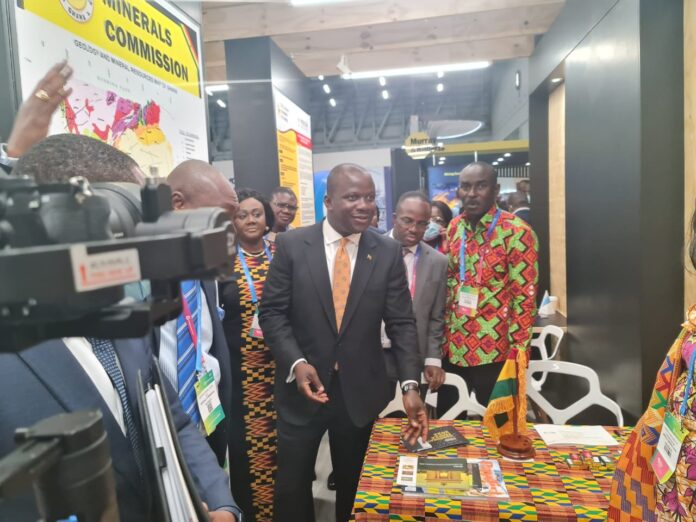
Minister for Lands and Natural Resources, Samuel Abu Jinapor, is advocating policy and legislative framework in the determination of resource nationalism and exploitation of such resource for development.
According to him, a statutory framework on natural resources that is known to both investors and states ensures investors that come into Africa will be aware of the fiscal framework of countries.
He pointed out that if the regulatory framework is well known, the rules do not get changed in the middle of an agreement leading to conflict.
Speaking on Tuesday at the Mining Conference in Cape Town, South Africa on the theme, “Resource Nationalism Challenge: How has the Global Pandemic Shaped Sovereign State Views on Resource Nationalism and Collaboration,” Mr. Jinapor argued resource nationalism is at the heart of the mining industry and stressed how this phenomenon is dealt with is very consequential.
He pointed out that resource nationalism has not yet been given a very definitive definition by academics and mining exports but stressed at the level of policy making the phenomenon is considered in two ways.
According to him, the consideration of outright exploration, seizures and state control interventions has become quite unfashionable and given way to new reasoning.
“The sophisticated tools of local content, indigenization, tweaking of already established contracts and agreements and breach of contracts, and so on, which is also another mechanism for resource nationalism has become common.”
“Being able to attract the needed capital investment and technology and how to exploit these resource for the benefit of the citizens of the state is the biggest issue we have to deal with,” he stated.
Citing the example of Ghana, the Minister averred the framework for the mining sector is certain and cast our clearly and so if an investor wants to take a decision to invest in Ghana, they can be certain they are investing in a democratic state where the rule of law prevails and sanctity of contract is the norm.
“And so if we get into negotiations, and we cast the terms of our negotiation in a contract, you can rest assured that it will be respected,” he added.
He disclosed that President Nana Addo Dankwa Akufo-Addo has rolled out a programme and a vision that will result in a major paradigm shift in how the Ghanaian mining industry is regulated and operated, which is insistence on value addition.
This programme, he said, is determined to ensure that value is added to minerals mined in Ghana like gold from exploration prospecting, mining to refinery to the downstream industries.
“All of these are matters that we’re planning. So is it for iron, steel and bauxite. By an Act of parliament, we are insisting that within five years after the promulgation of the law, no raw bauxite can be exported out of Ghana.”
“
Value addition will ensure that we retain a lot of the value in Ghana as well as also putting in place special institutional arrangements such as the Mineral Development Fund where we are dedicating 20% of our royalties for development in mining communities in Ghana, and the Minerals Income
Investment Fund (MIIF) where we are seeking to collateralize and leverage royalties for national development and in mining communities and to also bring about capital to indigenize the mining community in our country,” he said.

